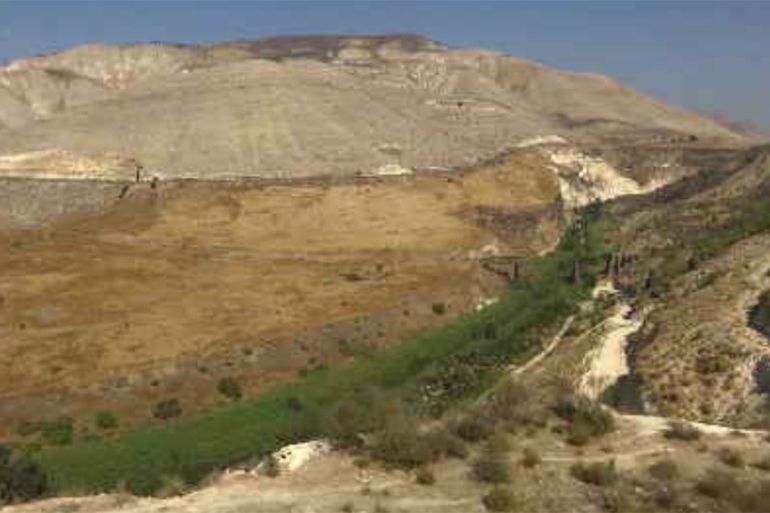Climate change: Jordan water crisis ‘to get worse’
Recent study finds that country is getting hotter and drier faster than previously anticipated.

Water shortages in Jordan are likely to get far worse over the coming years, according to a recent study by Stanford University.
The researchers said that, in the absence of international climate policy action, the country could receive 30 percent less rainfall by 2100 and annual temperatures could increase by 4.5 Celsius.
Keep reading
list of 4 itemsThe Alabama town living and dying in the shadow of chemical plants
How India is racing against time to save the endangered red panda
Canada wildfires spur evacuation orders, warnings: What you need to know
This would double the number and duration of droughts when compared with the 1981-2010 period, raising concerns in a country already dealing with water shortages.
The study reinforces a warning issued by the World Bank in August when it named Jordan, Iraq, Lebanon, Morocco and Syria as the countries in the Middle East and North Africa that will experience significantly increased water stress driven by climate change.
In its report, the World Bank described the region as the global hotspot of unsustainable water use.
Currently, the reservoirs in Jordan are at a record low – only one-fifth full – and the vital winter rains are becoming increasingly erratic.
There seems little respite for the country, which draws 160 percent more water from the ground than is replenished by nature.
But despite its importance, there is little incentive to conserve the precious resource. The use of water irrigation remains heavily subsidised, and wastage is a major issue.
More than half of Jordan’s water is used for agriculture, which produces only a small share of the local food supply. It is estimated that almost 50 percent of the water supply is lost due to misuse or theft.
The subsidy also means that some farmers grow water-intensive crops such as bananas and tomatoes.
The government is cracking down on illegal water use and has announced a slight increase in price, but Ali Subah, assistant secretary-general in the Ministry of Water and Irrigation, says the country views desalination as the answer to its water issues.
The trouble is that solutions often depend on cross-border cooperation. Jordan’s flagship Red Sea desalination project, for example, has faced repeated delays, most recently because of a regional diplomatic crisis that led to a scaling back of cross-border contacts since the summer.
Until a solution is found, the fear is that the water crisis in Jordan will only get worse.